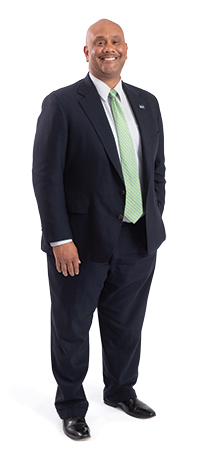
Writer: Suzanne Behnke
Iowa’s unemployment rate hit some record lows in recent months.
One population segment, though–teenagers and young adults–lags in job opportunities, with their employment down 20 percent in the past 15 years, according to United Way of Central Iowa.
Those figures bother Marvin DeJear, director of the Evelyn K. Davis Center for Working Families in
Des Moines.
When DeJear started there in 2012, he realized there was a range of job training programs for adults but just one for youths, at Oakridge Neighborhood.
“With every state competing for workers, I felt that if we are really serious about making sure Iowa has the workforce we need in the future, we need to invest in the youth right here in our backyard, particularly in Des Moines
Public Schools,” he says.
That’s where Des Moines Area Community College’s Summer Youth Experience Program (SYEP) seeks to provide work-readiness training and workplace experience for youths as young as 14. Participants are then placed with an area employer for eight weeks.
In cooperation with DMACC, the Evelyn K. Davis Center has a community committee–many members are retired educators–that played a big role in developing SYEP, especially for youths who face racial, social or other barriers to employment.
“We’re going to have a diverse workforce in the future whether we’re ready or not,” DeJear says. For the 2018-19 school year, about 62 percent of the 32,789 students enrolled were from non-Caucasian populations, according to the district’s website.
When it launched in the summer of 2013 there were 132 applicants, with 31 students being accepted. In 2018, 106 youths participated in the program; as of this issue’s press time, 2019 program participants hadn’t yet been chosen.
Funding initially came through United Way of Central Iowa and the Principal Charity Golf Classic. United Way and other groups knew job training was imperative for the region.
“We know that first job is so important, and it’s really important to have that first job when you’re young, because you learn so much in that first experience—how to communicate, how to work in a team, and those soft skills,” says United Way CEO and President Elisabeth Buck. “Also that’s the time where it’s OK to make a mistake. … Usually your employer is in a position of mentoring and helping to grow your skills.”
The Summer Youth Employment Program runs 10 weeks. In the first two weeks, participants receive training to be ready for their job; they must interview and be placed with a partner-employer. They are exposed to financial planning and budgeting so they know what to do with a paycheck once it’s earned.
The real world comes in the next eight weeks. When students are placed with an employer, the youths work 20 hours a week and follow up at the center. There’s an on-the-job component and there is classroom time as well to provide feedback, mentoring and reflection, DeJear says.
Mariama Corneh, originally from Liberia, is a “graduate” of SYEP from 2013. The program took her to the local plant of tire-maker Bridgestone. She took tire treads from the assembly
line and measured them to ensure they met specifications for details such as tread depth.
The experience taught her two valuable lessons she says she uses still: the importance of precision and the ability to work with colleagues of different ages.
These days she works in Oak Ridge, Tennessee, as a stress engineer for a uranium processing system. She has a degree in mechanical engineering from the University of Iowa and says she believes she landed the job because she had early work experience.
Her advice to anyone thinking of applying for SYEP: “Do it. The thing about this program is it exposes them to job opportunities.”
Just over 700 youths have been through the program. DeJear wonders about the hundreds who applied and were turned away.
The barrier to expanding is funding.
It costs $2,500 per participant, with business partners paying the youths.
“It just seems like it’s a win-win if an employer can help the young teenager that could potentially be an employee for them in the future,” Buck says.





